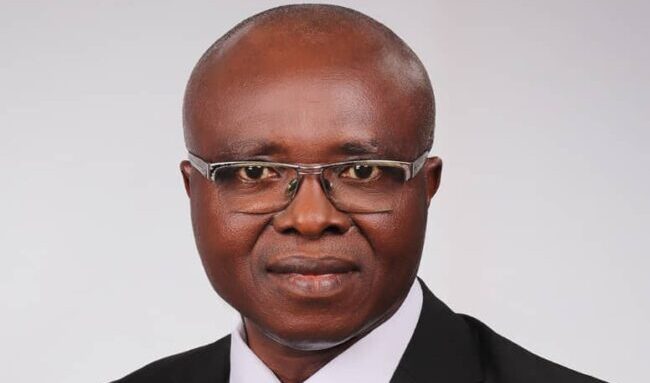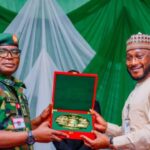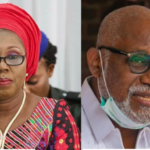
A Senior Advocate of Nigeria (SAN), Barr. Ngozi Olehi, has described the proposed creation of 31 new states in the country by the National Assembly as an effort that constitutes a grievous burden to Nigeria.
He also stated that it demonstrates how insensitive the members are to the crippling challenges that have made Nigeria a failed nation.
Addressing newsmen in Owerri on Monday, Barr. Olehi said that grave insecurity all over Nigeria, weak rule of law, high poverty profile, corruption, limitations on political participation, excessive cost of governance, and an extremely poor electoral culture have dragged Nigeria into failure.
He wondered why the National Assembly should consider state creation as a priority in the face of economic and political disasters plaguing the nation.
Olehi described it as disturbing that the National Assembly is unperturbed that the 2024 Chandler Good Government Index ranked Nigeria as the fourth-worst governed country in the world, using seven pillars of assessment on leadership and foresight, robust laws and policies, strong institutions, financial stewardship, attractive marketplace, global influence and reputation.
Barr. Olehi lamented that if the National Assembly were sensitive, patriotic, and vibrant, dynamic laws and aggressive oversight functions duly created in the 1999 Constitution (as amended) would have charted the course out of the socio-economic and political abyss Nigeria has found itself in.
He insisted that Nigeria’s woes are shameful emanations from decrepit leadership, which has become a formidable development obstacle, adding that it would continue to worsen the unfortunate poverty profile and decapitate economic opportunities.
He pointed out that there is no wisdom presently in getting the people to be running about for state creation and possibly sharing of palliatives.
On sustainable development in Nigeria, Barr. Olehi says it is impossible to move Nigeria beyond current primordial levels of governance at all tiers without servant leadership and a well-articulated policy framework for strengthening institutions, human capital development, and integrating the pivotal role of the rule of law in public service.
According to him, the abundance of natural endowments requires accountable leadership to transform raw wealth into economic prosperity that will benefit the entire citizenry.
He said that the evidence of transactional governance is littered everywhere, as governance has become the surest route to stupendous wealth, while the political class do not practically bother that Nigeria, the world’s largest black nation, has been degraded through uncharitable and callous patterns of governance, to the world’s poverty capital.
He said the total economic value of natural assets was $44 trillion worldwide, or $7,000 per person on average, while “intangible” capital accounted for the greatest component of total wealth – worth a massive $540 trillion worldwide. He pointed out that though the World Bank and some international financial institutions give Nigeria bitter pills to swallow to heal Nigeria’s gravely failed economy, their models for governance on Accountability, Transparency and the Rule of Law restore the confidence of the governed and attract foreign direct investments, without which any economy stagnates into penury.
The SAN said the World Bank study shows that the totality of the wealth of a nation has three key inputs: the nation’s produced wealth (e.g. infrastructure), natural wealth (e.g. oil and gas), and intangible wealth (e.g. human capital and quality of institutions).
He added that worldwide natural capital accounts for 5% of total wealth, while produced capital and intangible capital account for 18% and 77% of total wealth respectively, making intangible capital the true wealth component of wealthy nations.
He said the richest countries of the OECD are characterised by high intangible capital and low natural capital, while the poorest countries of sub-Saharan Africa are characterised by high natural capital and lower intangible capital, which is worsened by leadership deficits, high cost of governance and dreadful levels of sophisticated corruption, as well as the inexplicable absence of strong institutions, human capital development and abject level of rule of law.
Barr. Olehi, SAN, regretted that Federal and State Government officials in Nigeria regard democratic and electoral institutions as their personal chattels that will deepen their hold on power and drive their selfish desires to be strong politicians, even when social, economic and infrastructural indices are at pitiable levels of non-performance or dismal dilapidation.
He called on the Federal and State Governments in Nigeria to devise concrete policies to reverse the country’s poor rankings on human capital development, rule of law and sustainable development, without which the multidimensional excruciating poverty profile will worsen.
He regretted that the politicians are more concerned with how to rig the next elections and perpetuate themselves in power without any iota of concern about the economy they have wrecked, adding that the insecurity they have created to cover their atrocities and high-profile corruption they rejoice in has pushed more than 70% of the people into penury through poor macro-economic governance and the selfishness of leaders.
ALSO READ THIS TOP STORY FROM NIGERIAN TRIBUNE
WATCH TOP VIDEOS FROM NIGERIAN TRIBUNE TV
- Let’s Talk About SELF-AWARENESS
- Is Your Confidence Mistaken for Pride? Let’s talk about it
- Is Etiquette About Perfection…Or Just Not Being Rude?
- Top Psychologist Reveal 3 Signs You’re Struggling With Imposter Syndrome
- Do You Pick Up Work-Related Calls at Midnight or Never? Let’s Talk About Boundaries






